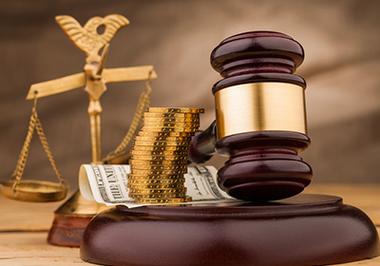
Title: The Pros and Cons of Credit Cards
Credit cards have become an integral part of modern society, offering numerous benefits to their users. However, they also come with certain drawbacks that must be considered before relying too heavily on this financial tool. In this essay, we will explore both the advantages and disadvantages of using credit cards.
Advantages:
1. Convenience: Credit cards are incredibly convenient for making purchases, whether online or in physical stores. They eliminate the need to carry cash and provide a quick and easy means of payment. Additionally, many cards offer rewards programs, allowing users to earn points, miles, or other benefits for their purchases.
2. Building credit: For those who are new to credit or have limited credit history, credit cards can help establish a solid credit profile. Making on-time payments and maintaining a low balance can improve one's credit score and make it easier to obtain loans and other forms of credit in the future.
3. Emergency funds: Credit cards can be a lifeline during unexpected expenses, such as medical bills or car repairs. Many cards offer emergency cash advances with lower interest rates than traditional personal loans or bank overdrafts.
Disadvantages:
1. High-interest rates: Credit card interest rates are typically much higher than those offered on personal loans or mortgages. If you fail to pay off your balance in full each month, you will incur significant interest charges, potentially leading to debt accumulation.
2. Fees and penalties: Credit cards often come with various fees, such as annual fees, late payment fees, and balance transfer fees. These costs can quickly add up and offset any potential savings from rewards programs.
3. Temptation to overspend: With the ease and convenience of credit cards, it is easy to fall into the trap of overspending. This can lead to high debt levels and negatively impact one's financial well-being.
Conclusion:
Overall, credit cards can be a useful tool when used responsibly. They offer convenience, can help build credit, and provide emergency funds in times of need. However, it is crucial to understand the potential risks and drawbacks associated with credit card use, such as high-interest rates, fees, and the temptation to overspend. By using credit cards wisely and maintaining a healthy balance between their benefits and potential pitfalls, individuals can reap the advantages without falling victim to their downsides.
随着科技的发展和金融市场的不断创新,信用卡已经成为现代人生活中不可或缺的一部分。信用卡为消费者提供了便捷的支付方式,同时也为商家和银行带来了丰厚的利润。然而,信用卡的使用也存在一定的风险,如逾期还款、欺诈等。为了保护消费者的权益,各国法律对信用卡的使用进行了严格的规定和保护。
信用卡的使用有助于建立良好的信用记录。通过按时还款,消费者可以提高自己的信用评分,从而在未来申请贷款、购房等方面获得更优惠的条件。同时,银行和金融机构也会根据消费者的信用记录来决定是否给予贷款、额度等。因此,信用卡的使用对于个人信用评分的提升具有重要意义。
信用卡在使用过程中为消费者提供了一定程度的消费保障。许多信用卡都提供了购物保险、旅行意外险等附加服务,以确保消费者在购物或旅行过程中遇到意外情况时能够得到及时的赔偿。这些保障措施在一定程度上降低了消费者使用信用卡的风险。
信用卡还可以帮助消费者更好地管理个人财务。通过信用卡账单的提醒功能,消费者可以随时了解自己的消费状况,避免过度消费。同时,信用卡还提供了一系列的理财工具,如分期付款、现金提取等,帮助消费者实现资金的有效利用。
然而,信用卡的使用也存在一定的法律风险。为了保护消费者的权益,各国法律对信用卡的使用进行了严格的规定。例如,要求银行和金融机构提供真实的商品和服务信息,禁止虚假广告和欺诈行为;规定消费者有权在发现问题时向相关部门投诉举报,银行和金融机构有义务进行调查和处理;对于违反法律法规的行为,如恶意透支、诈骗等,将依法追究刑事责任。
信用卡作为一种重要的金融工具,在为消费者带来便利的同时,也需要在法律的保护下合理使用。消费者应当了解信用卡的相关法律法规,合理规划个人财务,确保自己的权益不受侵害。银行和金融机构也应当严格遵守法律法规,切实履行社会责任,为消费者提供安全、可靠的金融服务。




